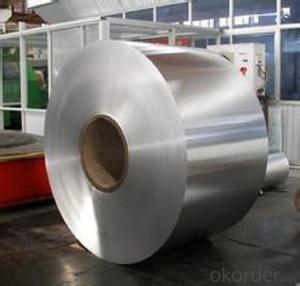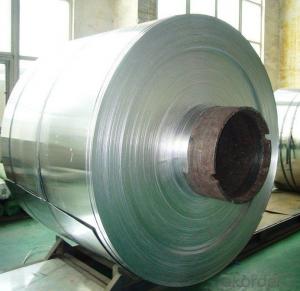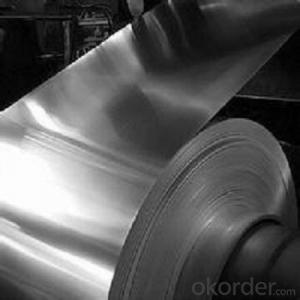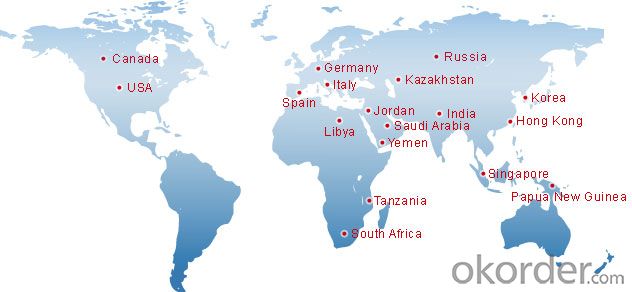Mill Finish Coil 5052 Aluminum Alloy Properties
- Loading Port:
- Shanghai
- Payment Terms:
- TT OR LC
- Min Order Qty:
- 2.5
- Supply Capability:
- 5000 m.t./month
OKorder Service Pledge
OKorder Financial Service
You Might Also Like
Item specifice
Mill Finish Coil 5052 Aluminum Alloy Properties
l Product Description
Aluminum Coil - Specifications
- Manufactured in compliance with the main international specifications and standards, including: Aluminum Association, ASTM, EN, and DIN.
Aluminum Coil - Tolerances
- Manufactured in compliance with the main international specification and standards.
- Tighter tolerances are available upon request.
Aluminum Coil - Surface Conditions
- Mill, Matte, Bright and Brushed
- Cleaning and degreasing
- Surface oiling
- Customized surface conditions available upon request.
Aluminum Coil - Special Processing
- Cut-to-Length
- Tension Leveling
- Paper Interleaving
- Fine grain, minimum earring, anodizing quality
l Product Specification:
The Composition Aluminium Coil 5052
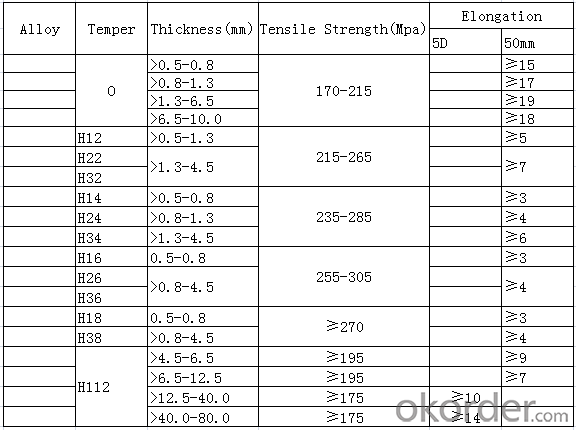
l Packaging & Delivery
Packaging detail: Standard seaworthy exporting carton, Wooden pallets, waterproof paper and plastic coverage or as customer's requirements
Delivery detail: about 25 days from received oiginal L/C or advance payment
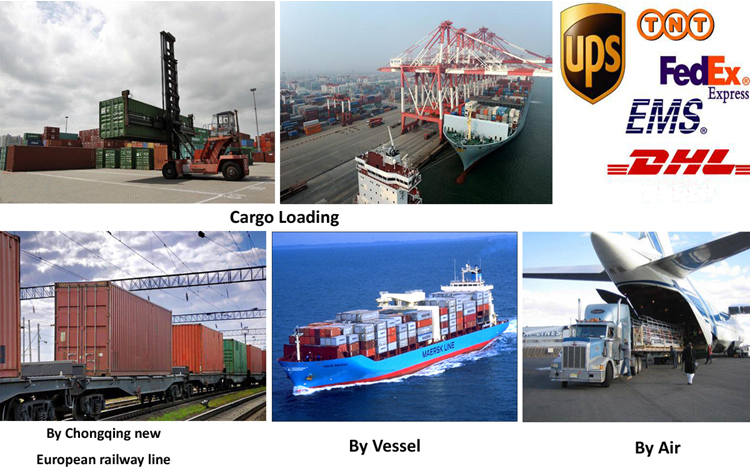
l Company Profile
CNBM International Corporation, China National Building Materials (Group) Corporation, is one of the largest companies in China building material & equipment industry, with 42,800 employees and sales in 2005 of US Dollar 4.395 billion. In 2006, China National Building Material Company Limited was listed on Hong Kong Stock Market with the stock code as 3323. |
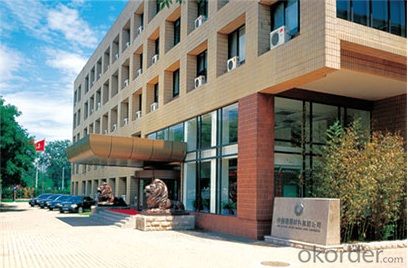
l CNBM World Wide
l Product Images
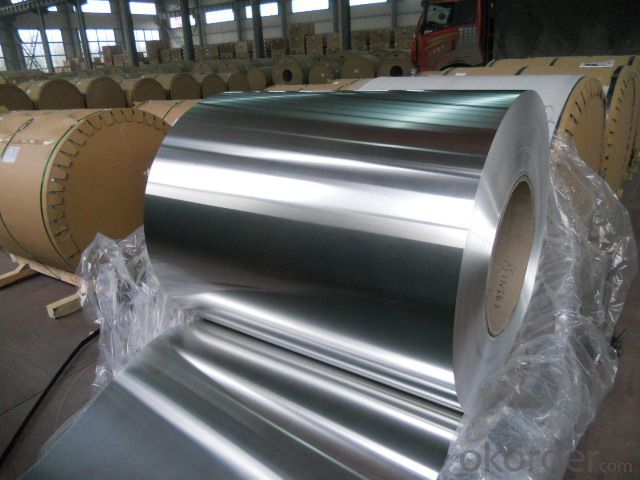
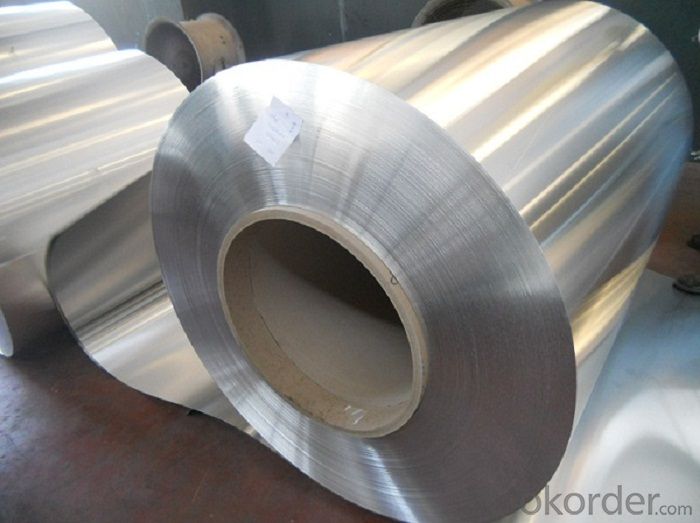
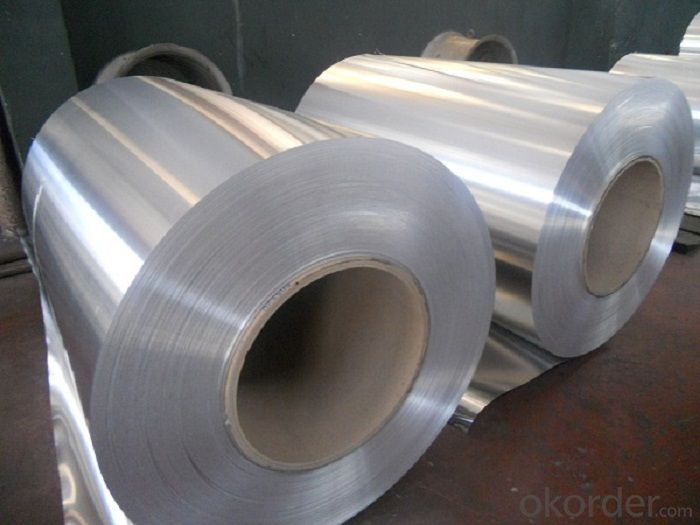
l Certificates
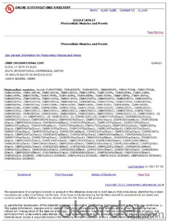
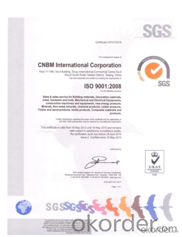
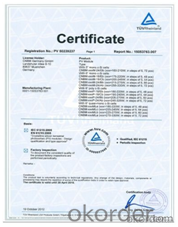
l FAQ
Q: Do you provide free samples?
A: Yes, free samples will be sent to you on freight at destination.
Q: Can I get your latest products catalogue?
A: Yes, it will be sent to you in no time.
Q: What is the MOQ?
A: 2.5 tons
Q: What are your payment terms?
A: We accept L/C, T/T.
- Q:How long do aluminum coils last?
- The lifespan of aluminum coils can vary depending on various factors such as maintenance, usage, and environmental conditions. On average, well-maintained aluminum coils can last between 15 to 20 years. However, with proper care and regular cleaning, some aluminum coils have been known to last even longer, up to 30 years or more. It is important to note that regular maintenance, such as cleaning the coils, checking for any damage or corrosion, and ensuring proper airflow, can significantly extend the lifespan of aluminum coils. Additionally, factors like exposure to harsh weather conditions, humidity levels, and the quality of installation can also impact the longevity of aluminum coils.
- Q:This is for handling aluminum
- Aluminum as a solid is very safe; although non-nutritious (your body does not require it), its accumulation in tissues is apparently not directly harmful. Individuals who work years of their lives in handling aluminum have no higher incidence of Alzheimer's disease than those that do not. As a powder- particularly very fine powders- aluminum is extremely hazardous with respect to its combustibility, and is used in fireworks (sparklers, for example). When it burns, it is extremely hot, and extinguishing it should not be attempted without training and the correct tools- usually salt or Purple K extinguishing agent. However, it burns so quickly that it will usually be out before attempts can be made.
- Q:What is the hardness range of aluminum coils?
- The hardness range of aluminum coils can vary depending on the specific alloy and temper. Aluminum coils can be produced in a wide range of hardness levels, from very soft to very hard. The hardness of aluminum is often measured using the Rockwell or Brinell hardness scales. Soft aluminum coils typically have a lower hardness range, ranging from 20 to 40 on the Rockwell scale. These soft coils are commonly used in applications where flexibility and formability are important, such as packaging, insulation, and electrical wiring. Hard aluminum coils, on the other hand, have a higher hardness range, typically ranging from 40 to 70 on the Rockwell scale. These coils are more rigid and have better mechanical properties, making them suitable for applications that require strength and durability, such as automotive parts, construction materials, and aerospace components. It is important to note that the specific hardness range of aluminum coils can also be influenced by factors such as the rolling process, heat treatment, and alloy composition. Therefore, it is always recommended to consult the manufacturer or supplier for the specific hardness range of the aluminum coils being considered for a particular application.
- Q:How much is one square aluminum gate and five hard door?
- Double layer aluminum alloy, in the middle of the 5 bars, ordinary white or beige is 215, a square, the motor, in addition, the general 600KG copper core motor has 550 sets, there are 680 sets. On the Alibaba website search "roll gate", there are many manufacturers, you can ask them.
- Q:What is the electrical conductivity of aluminum coils?
- The electrical conductivity of aluminum coils is relatively high. Aluminum is known for its good conductivity, with a conductivity rating of approximately 37.7 x 10^6 siemens per meter (S/m). This makes aluminum an excellent choice for various electrical applications, including the manufacturing of coils. The high conductivity of aluminum allows for efficient transmission of electric current through the coils, making them suitable for use in electrical wiring, transformers, motors, and other electrical equipment.
- Q:Can aluminum coils be used in corrosive environments?
- No, aluminum coils should not be used in corrosive environments. Aluminum is susceptible to corrosion, especially in the presence of certain chemicals or salts. Therefore, it is recommended to use a more corrosion-resistant material, such as stainless steel, in such environments.
- Q:Can aluminum coils be used in solar energy systems?
- Certainly, solar energy systems can utilize aluminum coils. Aluminum is widely employed in the fabrication of solar panels and solar energy systems owing to its remarkable qualities. Lightweight, durable, and possessing excellent thermal conductivity, aluminum coils are perfect for dispersing heat away from solar cells. Moreover, aluminum's resistance to corrosion is essential for outdoor deployments, where solar panels face diverse weather conditions. By incorporating aluminum coils into solar energy systems, the efficiency and lifespan of the panels are enhanced, thus augmenting the efficacy and sustainability of solar energy generation.
- Q:How do aluminum coils contribute to energy savings in buildings?
- Aluminum coils play a vital role in HVAC systems for buildings, helping to save energy. To start, aluminum coils are highly effective at transferring heat. HVAC systems use these coils to facilitate the exchange of heat between indoor and outdoor environments. Aluminum's thermal conductivity allows for fast and efficient heat transfer, resulting in less energy needed to heat or cool a space. This means that HVAC systems equipped with aluminum coils can achieve the desired indoor temperature more efficiently, leading to energy savings. Furthermore, aluminum coils are lightweight and have excellent corrosion resistance. This property ensures the longevity and durability of the HVAC system, reducing the need for frequent replacements. By lasting longer, the energy and resources used in manufacturing new coils are saved, resulting in reduced energy consumption and environmental impact. Moreover, aluminum coils are highly recyclable. When an HVAC system reaches the end of its life cycle, the aluminum coils can be easily recycled and repurposed. Recycling aluminum requires significantly less energy compared to producing new aluminum from raw materials. By promoting recycling, energy is conserved, and greenhouse gas emissions are reduced. Additionally, aluminum's reflective properties contribute to energy savings in buildings. When used in HVAC systems, aluminum coils can reflect and deflect sunlight, reducing the amount of heat absorbed by the building. This reduces the workload on the HVAC system, resulting in lower energy consumption and increased energy efficiency. In conclusion, the use of aluminum coils in HVAC systems brings about energy savings in buildings due to their high thermal conductivity, lightweight and durable nature, recyclability, and reflective properties. By adopting aluminum coils, buildings can achieve optimal temperature control with reduced energy consumption, leading to significant energy savings and a more sustainable environment.
- Q:How are aluminum coils processed for surface preparation?
- To ensure proper adhesion of coatings, improve corrosion resistance, and enhance overall appearance, various surface preparation processes are carried out on aluminum coils. These processes typically include cleaning, degreasing, and etching. To begin with, the coils undergo a cleaning process to eliminate any dirt, dust, or contaminants. This can be achieved through either mechanical or chemical methods. Mechanical cleaning involves the use of brushes, scrubbers, or high-pressure water spray to physically remove impurities from the surface. On the other hand, chemical cleaning involves the application of mild alkaline or acidic cleaning agents that dissolve and eliminate contaminants. Following the cleaning process, the coils are degreased to eliminate any remaining oils or greases. This can be done using solvents or an alkaline degreasing process. Solvent-based degreasers are applied to the coil surface, allowing them to dissolve and remove any oil or grease residues. Alternatively, alkaline degreasing involves immersing the coils in an alkaline solution that reacts with the grease, resulting in the formation of soap that can be easily rinsed off. Once the coils have been cleaned and degreased, they may undergo an etching process to enhance surface roughness and promote better adhesion of subsequent coatings. Etching can be carried out using chemical or electrolytic methods. Chemical etching involves immersing the coils in an acidic solution that removes a thin layer of aluminum oxide from the surface, creating a roughened surface. On the other hand, electrolytic etching utilizes an electrical current to remove the oxide layer. After the surface preparation steps, the aluminum coils are typically rinsed with water to remove any residual cleaning or etching chemicals. Subsequently, the coils are dried to ensure a clean and dry surface, ready for the application of coatings or further processing. In conclusion, the surface preparation of aluminum coils involves a combination of cleaning, degreasing, and etching processes to achieve a clean, smooth, and properly prepared surface for subsequent treatments.
- Q:Can aluminum coils be used in chemical processing plants?
- Yes, aluminum coils can be used in chemical processing plants. Aluminum is resistant to many chemicals, especially in non-acidic environments. It is lightweight, has good thermal conductivity, and can withstand high temperatures, making it suitable for various applications in chemical processing plants.
1. Manufacturer Overview |
|
|---|---|
| Location | |
| Year Established | |
| Annual Output Value | |
| Main Markets | |
| Company Certifications | |
2. Manufacturer Certificates |
|
|---|---|
| a) Certification Name | |
| Range | |
| Reference | |
| Validity Period | |
3. Manufacturer Capability |
|
|---|---|
| a)Trade Capacity | |
| Nearest Port | |
| Export Percentage | |
| No.of Employees in Trade Department | |
| Language Spoken: | |
| b)Factory Information | |
| Factory Size: | |
| No. of Production Lines | |
| Contract Manufacturing | |
| Product Price Range | |
Send your message to us
Mill Finish Coil 5052 Aluminum Alloy Properties
- Loading Port:
- Shanghai
- Payment Terms:
- TT OR LC
- Min Order Qty:
- 2.5
- Supply Capability:
- 5000 m.t./month
OKorder Service Pledge
OKorder Financial Service
Similar products
New products
Hot products
Hot Searches
Related keywords
